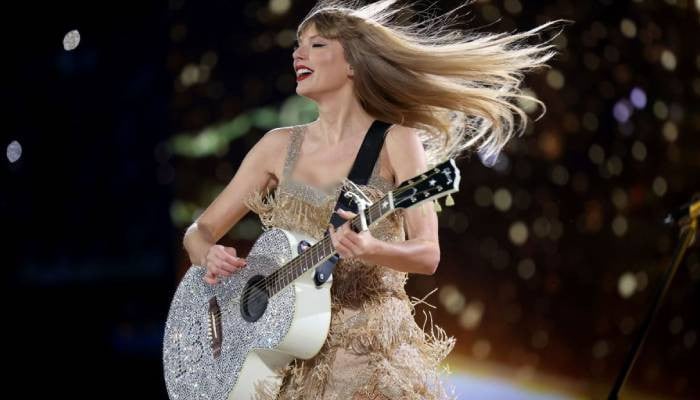Health
Iqbal’s philosophy
字号+ Author:Smart News Source:Business 2025-01-14 02:45:07 I want to comment(0)
IQBAL’S philosophy could be an elixir for creating and sustaining global peace. The ongoing genocide of Palestinians by Israel and its allies is a heinous crime against humanity that has been stoking the boiling cauldron of conflicts in the Middle East, which would embroil the entire world and cause World War III. If WWIII occurs, it would be a nuclear war. In Why Social Justice Matters (2005), political philosopher Brian Barry predicted that life on earth would be almost wiped out by 2100 either by nuclear holocaust or ecological decay. Is this just a prediction or a stark reality humanity faces? Certainly, under the dark clouds of violence, war, or terrorism across the world, a clear threat of nuclear holocaust hangs over us. Some argue that Iqbal is a radical philosopher who supports warfare. This argument is wrong because Iqbal’s philosophy liberates humanity from exploitation, humiliation, colonialism, and imperialism through positive human action. Iqbal’s ideal individual is creative, dynamic, empirically informed, and a creator of a just and peaceful world. In a new year message, ‘Brotherhood of Man’, broadcast from All India Radio, Lahore, on Jan 1, 1938, Iqbal not only described the sociopolitical conditions of the world at the time but also presented a manifesto for global peace. With this manifesto, Iqbal can be placed among the first-rank peace theorists of the 20th century, including Albert Schweitzer, Albert Einstein, Bertrand Russell, Mahatma Gandhi, Martin Luther King, Eqbal Ahmad, and Nelson Mandela. In ‘Brotherhood of Man’, Iqbal’s argument states that on the one hand, human beings have made remarkable progress in science and technology, which created a new world. On the other hand, the world is so miserable that “It is as if the day of doom had come upon the earth, in which each looks after the safety of his own skin.” After over eight decades, there has been no moral progress. Iqbal’s ideal individual wants a just and peaceful world. Historically, just before the start of WWII, Iqbal asked a crucial question: is this going to be the end of all progress and evolution of human civilisation? Indubitably, WWII devastated humanity by killing millions through conventional and nuclear arsenals. Iqbal fosters the creation and sustainability of positive peace. Negative peace refers to the absence of war, while positive peace refers to the presence of life-promoting values and activities. Only positive peace is sustainable. Iqbal writes: “Remember, man can be maintained on this earth only by honouring mankind, and this world will remain a battleground of ferocious beasts of prey unless and until the educational forces of the whole world are directed to inculcating in man respect for mankind.” According to Iqbal, ‘honouring mankind’ is necessary for creating peace. He also believes that global peace is impossible unless educational institutions impart the ethics of ‘honouring/ respect for humankind’, which I prefer to term ‘reverence for humanity’. Thus, all states must educate their people about the ethics of reverence for humanity for peaceful global coexistence. Highlighting the central ideals of Islam — equality, freedom, and solidarity — Iqbal accentuates the significance of brotherhood. He articulates: “Only one unity is dependable, and that unity is the brotherhood of man, which is above race, nationality, colour or language.” Indeed, the idea of the brotherhood of human beings provides a foundation for human unity, which eventually causes peaceful coexistence in the world. Iqbal envisages that false ideologies are enemies of global peace. He argues that until and unless the sha- ckles of so-called democracy, accursed nationalism, and degraded imperialism are destroyed, there is no possibility of the good life in which the ideals of liberty, equality, and fraternity are realised. Iqbal correctly argues that an ideology cannot promote peace if it causes humiliation, exploitation, or exclusion. Only that ideology can succeed that expresses reverence for humanity, transcending religion, culture, colour, or language because the whole world is the ‘family’ of God: all human beings are God’s creatures. To create eternal peace on earth, global leaders must stop the crimes against humanity, particularly in Palestine and held Kashmir, before WWIII breaks out and makes Brian Barry’s prediction about the extinction of life come true. Political leaders must have the moral and intellectual vision to promote the values of unity rather than division, cooperation rather than conflict, dialogue rather than war, and above all, humanistic education rather than the indoctrination of racism, colour, caste, or creed. At the end of ‘Brotherhood of Man’, Iqbal offers a prayer: “God Almighty may grant humanity to those who are in places of power and government and teach them to cherish [hu]mankind.”
1.This site adheres to industry standards, and any reposted articles will clearly indicate the author and source;
 Related Articles
Related Articles-
Israel Katz replaces Gallant as defence minister
2025-01-14 02:31
-
Diet quality directly impacts chronic pain levels: study
2025-01-14 02:13
-
Team from South Korea develops 'Iron Man' robot that helps paraplegics walk
2025-01-14 01:23
-
Pakistan's polio tally hits 65 after another child diagnosed in Balochistan
2025-01-14 00:48
 User Reviews
User Reviews Recommended Reads
Recommended Reads Hot Information
Hot Information- Israel carries out wave of air strikes on Beirut
- Fatal familial insomnia: Genetic disease where patient can't sleep at all
- Pakistan's 2024 poliovirus tally reaches 56 after fresh case reported in KP
- Bird flu builds up danger for breakfast in US
- Musk's ties with Trump do not threaten Bezos
- Are you still contagious after sickness? Here's how to know
- Anti-polio drive begins in Balochistan today
- SC constitutional bench fixes civilians military trial plea for hearing
- Israeli military says it shot down projectile fired from Yemen
 Abont US
Abont US
Follow our WhatasApp account to stay updated with the latest exciting content













